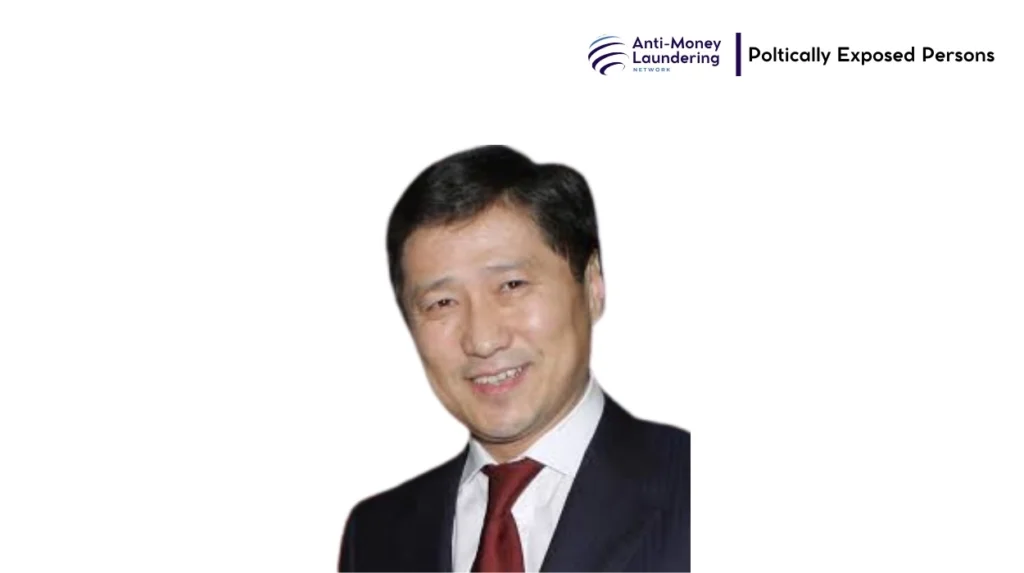Sükhbaataryn Batbold is a prominent Mongolian political figure best known for serving as the 26th Prime Minister of Mongolia from 2009 to 2012. A key member of the Sükhbaataryn Batbold political party, the Mongolian People’s Party, he has played an influential role in Mongolia’s political and economic landscape. His career spans significant ministerial roles before ascending to the premiership, shaping Mongolia’s policies during a pivotal time of development. However, his tenure and subsequent years have been shadowed by allegations regarding corruption and misuse of state resources, prompting critical scrutiny related to financial transparency and global accountability as a Politically Exposed Person (PEP).
Early Life and Background
Sükhbaataryn Batbold was born on June 24, 1963, in Dornod Province, Mongolia. His place of birth situated him in the remote eastern regions of the country, which have undergone enormous changes during his lifetime. He holds Mongolian citizenship and nationality, marked by deep roots in the country’s cultural and political fabric. Batbold pursued higher education diligently, completing studies at the School of International Relations at the University of Moscow in 1986. This foundational education prepared him for the complex world of diplomacy and governance, underpinning his later political endeavors.
Personal Life
The Sükhbaataryn Batbold family has remained relatively private beyond public interest related to Batbold’s political and business activities. He is married, and information about his spouse is cited in official profiles, but details are discreet to maintain privacy. The family includes Sükhbaataryn Batbold children, prominently his son, whose full public role remains minimal in political contexts. The family’s influence, however, reportedly extends beyond personal realms into economic and political domains, often highlighted in investigative reports linking family-controlled businesses to major national contracts.
Career and Achievements
Batbold’s political trajectory began in the early 2000s, with appointments to several key ministerial roles. He served as Deputy Minister of Foreign Affairs (2000–2004), Minister of Trade and Industry (2004–2006), and then Minister of Foreign Affairs (2008–2009). His expertise in trade and foreign relations paved the way for his leadership as Prime Minister from 2009 to 2012. During his premiership, Batbold focused on Mongolia’s economic development, particularly emphasizing the expansion and regulation of the country’s rich mineral resources.
Under his leadership, Mongolia navigated a complex period of growth driven by mining industries, particularly coal and copper extraction. His role as chairman of the Mongolian People’s Party cemented his influence in national politics, aligning the party’s platform with social-democratic values and transitioning it away from its historic communist roots.
Lifestyle, Wealth, and Assets
Sükhbaataryn Batbold net worth is a subject of considerable public interest and speculation. Prior to and during his political career, Batbold accumulated significant wealth, notably through stakes in Mongolia’s lucrative mining sector. Reports and investigations have suggested substantial holdings in assets such as luxury properties. Notably, Batbold has been linked through legal actions and global investigative leaks to luxury real estate investments abroad, particularly in New York City.
The assets allegedly include multimillion-dollar apartments purchased via complex offshore entities, underscoring concerns about asset concealment and money laundering risks. Such opulent lifestyle markers, including luxury properties and other high-value acquisitions, contrast with Mongolia’s economic challenges and have fueled debates about political financial transparency and elite accountability.
Influence, Legacy, and Global Recognition
As a leading figure in Mongolian politics, Batbold Mongolia’s legacy is multifaceted. He is credited with guiding Mongolia through an era of economic opportunity, leveraging the country’s natural resources to attract foreign investment. In addition, his leadership contributed to rebranding the Mongolian People’s Party as a modern, democratic force, navigating the delicate balance between tradition and reform.
However, Batbold’s international reputation is more controversial due to persistent allegations reported by investigative journalists and regulatory authorities. These include accusations of corruption linked to state contracts and efforts to channel illicit wealth through complex financial structures. His situation exemplifies the challenges faced by emerging democracies in curbing elite impunity while fostering international cooperation against transnational financial crimes.
Financial Transparency and Global Accountability
As a Politically Exposed Person (PEP), Sükhbaataryn Batbold’s case highlights critical concerns around global anti-money laundering standards and enforcement. Investigations by foreign jurisdictions, including the United States Department of Justice, have targeted suspected illicit proceeds connected to Batbold’s tenure, particularly focusing on luxury real estate holdings obtained through proxies.
This scrutiny reveals the systemic gaps in Mongolia’s governance and AML frameworks, where political elites often operate beyond effective oversight. Lack of meaningful domestic sanctions or comprehensive investigations reflects a political culture that can shield high-profile figures from accountability. The international community’s actions underscore a growing recognition of Mongolia’s vulnerabilities as a conduit for illicit finance and the essential role of cross-border cooperation to promote financial transparency and justice.
Sükhbaataryn Batbold remains a consequential figure in Mongolia’s political and economic history. From humble beginnings in Dornod Province to the heights of Prime Ministership, he has shaped policy and party politics with lasting impact. His career illustrates the intertwined nature of political power and economic opportunity in post-socialist Mongolia.
Yet, Batbold’s profile also stands as a cautionary tale about the dangers of unchecked political influence and the potential for abusing state resources for personal gain. The allegations of corruption and financial misconduct against him highlight enduring challenges in ensuring transparency and accountability in Mongolia’s evolving democratic institutions. As global AML and enforcement pressures mount, Batbold’s legacy will continue to be reassessed through the lenses of justice, reform, and the quest for equitable governance.

